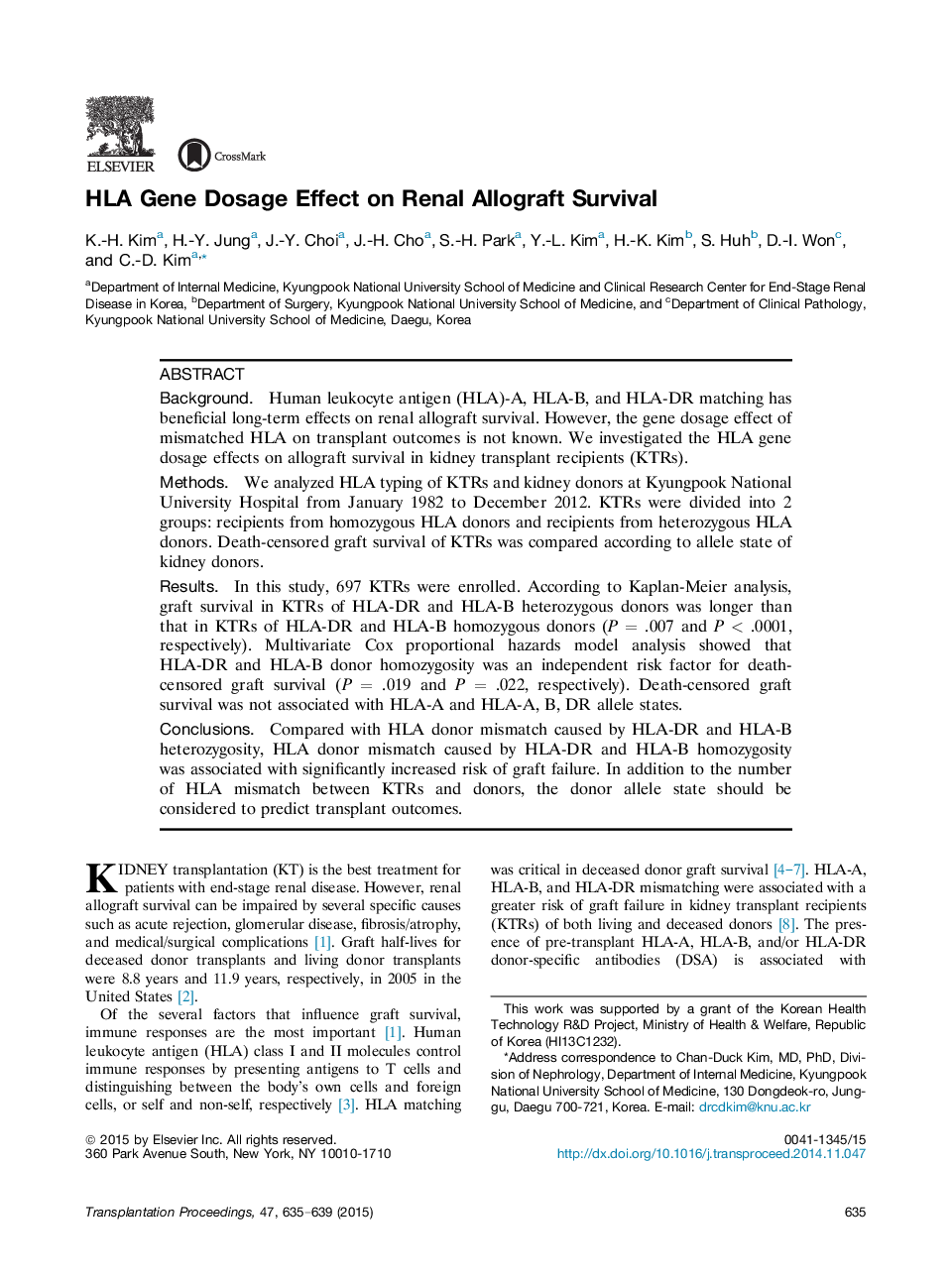| کد مقاله | کد نشریه | سال انتشار | مقاله انگلیسی | نسخه تمام متن |
|---|---|---|---|---|
| 6247809 | 1284520 | 2015 | 5 صفحه PDF | دانلود رایگان |

- The gene dosage effect hypothesis describes the relatively linear relationship between a phenotypic value and the contributing genes among co-dominant alleles.
- The recipients of HLA-homozygous donor kidneys may face a higher risk of graft failure compared with those who receive HLA-heterozygous donor kidneys.
- Compared with HLA donor mismatch caused by HLA-DR and HLA-B heterozygosity, HLA donor mismatch caused by HLA-DR and HLA-B homozygosity was associated with significantly increased risk of graft failure.
- In addition to the number of HLA mismatch between KTRs and donors, the donor allele state should be considered to predict transplant outcomes.
BackgroundHuman leukocyte antigen (HLA)-A, HLA-B, and HLA-DR matching has beneficial long-term effects on renal allograft survival. However, the gene dosage effect of mismatched HLA on transplant outcomes is not known. We investigated the HLA gene dosage effects on allograft survival in kidney transplant recipients (KTRs).MethodsWe analyzed HLA typing of KTRs and kidney donors at Kyungpook National University Hospital from January 1982 to December 2012. KTRs were divided into 2 groups: recipients from homozygous HLA donors and recipients from heterozygous HLA donors. Death-censored graft survival of KTRs was compared according to allele state of kidney donors.ResultsIn this study, 697 KTRs were enrolled. According to Kaplan-Meier analysis, graft survival in KTRs of HLA-DR and HLA-B heterozygous donors was longer than that in KTRs of HLA-DR and HLA-B homozygous donors (PÂ = .007 and PÂ < .0001, respectively). Multivariate Cox proportional hazards model analysis showed that HLA-DR and HLA-B donor homozygosity was an independent risk factor for death-censored graft survival (PÂ = .019 and PÂ = .022, respectively). Death-censored graft survival was not associated with HLA-A and HLA-A, B, DR allele states.ConclusionsCompared with HLA donor mismatch caused by HLA-DR and HLA-B heterozygosity, HLA donor mismatch caused by HLA-DR and HLA-B homozygosity was associated with significantly increased risk of graft failure. In addition to the number of HLA mismatch between KTRs and donors, the donor allele state should be considered to predict transplant outcomes.
Journal: Transplantation Proceedings - Volume 47, Issue 3, April 2015, Pages 635-639